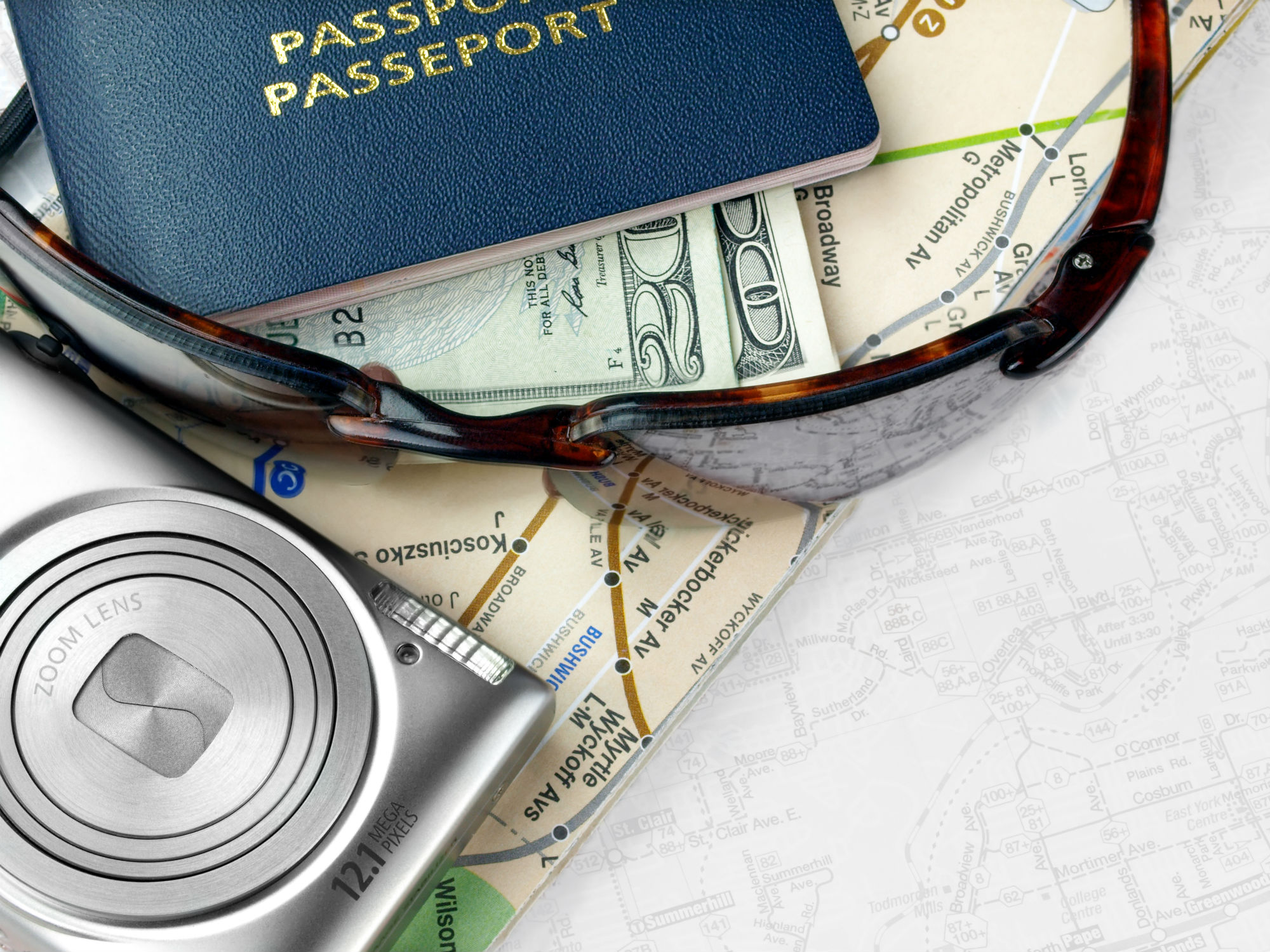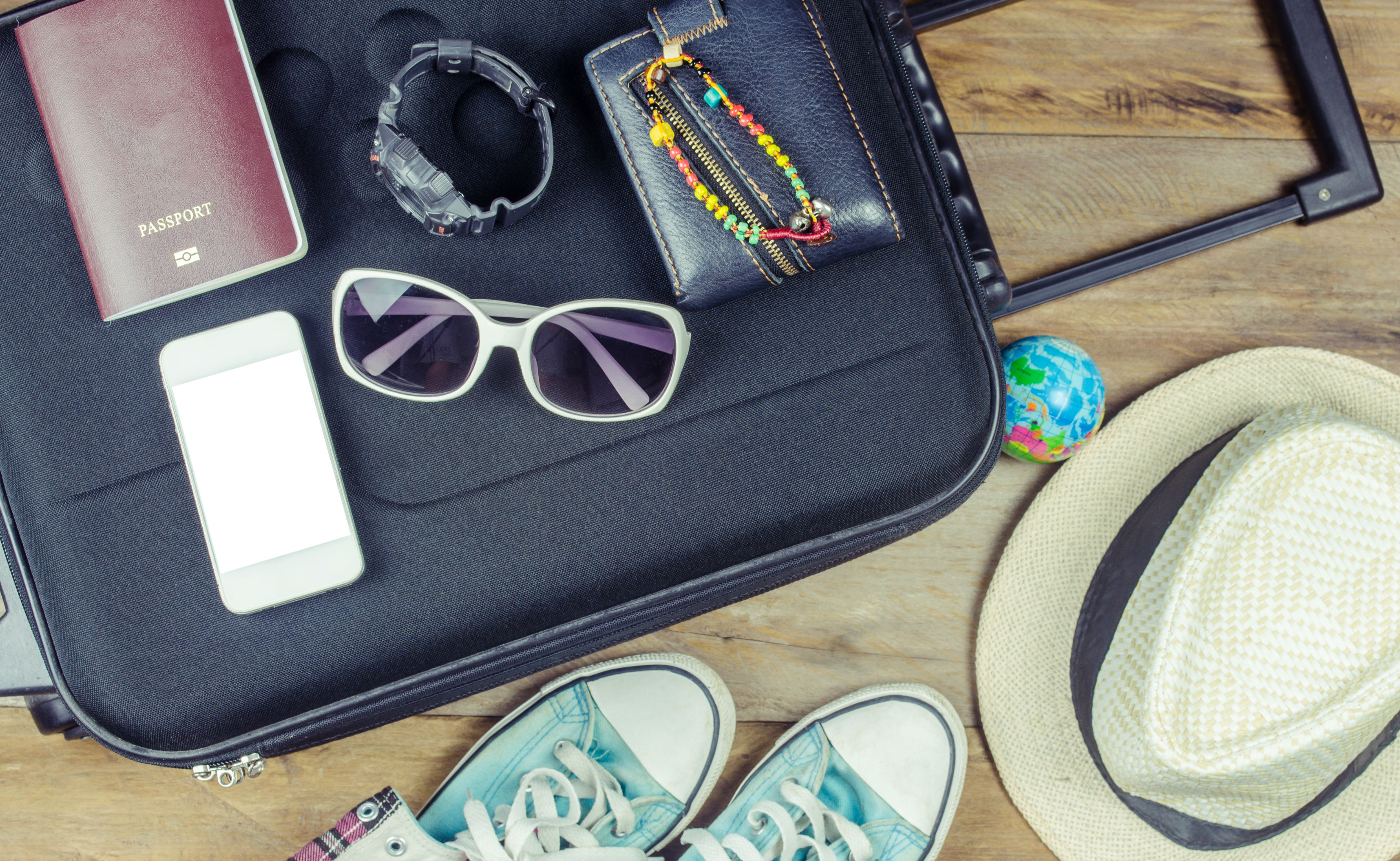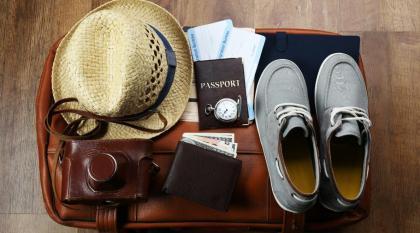What To Pack When You're Studying Abroad
You may be moving across the world to study English in a foreign country, but sometimes one of the hardest things about studying abroad is deciding what to pack!
Think about it. You’re moving to another country and you suddenly need to pack your life’s content into one suitcase (or maybe two if you're okay with baggage fees...). To help you out, we’ve put together the ultimate checklist of what to bring, and included some handy tips on how to save yourself some luggage space.
Things you need for the flight
- Your passport – this is a necessity! Good luck leaving the country without it!
- Your boarding passes – if possible, save yourself some time at the airport by printing these off at home before you go
- Your visa documents – learn from my mistakes and don’t turn up to the airport without the correct visa documents. In my case it was no visa, no flight!
- Your mobile phone & phone charger – if you hope to use your phone abroad, be sure to do a bit of research beforehand
- Cash – in both your home currency and host country’s currency
- Emergency contact list
- Your travel itinerary and connecting travel arrangement details
- Something to do – depending on the airline you are flying with, you might have entertainment built into the seat in front of you, but books, magazines, music, or whatever will keep you entertained on your flight are always a pleasant companion
- Warm clothing – this might depend on the person, but airplanes can be quite cold and it's nice to have an extra sweater!

Essentials
- A travel adapter – this is necessary if you want to use any of your electrics while you’re abroad
- Any medication or long-standing prescriptions – to avoid language barriers and difficult conversations in pharmacies, bring enough for the length of your stay if at all possible
- Bank Cards/ Credit cards
- ID / Driving licence
- Glasses / contact lenses
- Camera
- Underwear – roughly two weeks worth so that you don’t have to spend your time constantly doing laundry
- A backpack – it may not be your usual choice of bag, but they’re great for carrying your school books in, and even better for storing items of clothing for short weekends away
- Clothes – underwear, socks, pajamas, tights, jeans, tops, dresses, skirts, sweaters, scarves, belts, gloves and a coat! Be sure to research what weather to expect in whichever destination your visiting, and how many different seasons you should pack for

Useful things you probably want
- Currency – you'll be able to use your bank card to get cash from an ATM in your new home, but it's nice to have a bit of extra to be safe
- Laptop
- A towel – unless this will be provided by your accommodation
- A few hangers – unless these will be provided by your accommodation
- Travel-sized toiletries – e.g. deodorant, toothpaste, shampoo, conditioner and shower gel
- Photos of friends and family – this is a great way of bringing a small piece of home with you, and hopefully will help you to feel less homesick
- A journal – you may not be in the habit of writing a journal regularly at home, but writing a journal while living abroad is a great chance for you to record all of your adventures and memories, and will give you a unique souvenir to treasure and remember your trip by

Tips and tricks
1. A great way to save space is to ditch paperback books, and download the e-versions instead. With almost everyone owning a smart phone these days, you have the option to download books on the go, and save valuable space in your suitcase.
2. One of the best ways to make the most of your suitcase space is to leave your toiletries at home and purchase them when you arrive in your host country. Pack miniature, travel sized options that will last you for your first couple of days until you have time to do a big shop.
3. Although you may not think you’ll need it, try and pack a dressy outfit in your case, i.e. suit trousers and a shirt. If you’re studying abroad for a long time you might need it for a job interview, or even a fancy dinner or dance.
4. Because of electrical currents, sometimes your hair dryer / straighteners / curling iron may not work abroad even with an adaptor. You can save yourself a lot of space and leave them behind, and that way you don't have to worry about another adaptor. Unless you’re moving to a truly remote island somewhere, you’ll be able to buy cheap hairdryers and curling irons in most places.
5. Pack according to the weather. If you’re studying in a cold country, make sure to pack a warm coat, a scarf and gloves. If you’re studying in a hot country, make sure to bring swimwear so you can make the most of the hot climate. Simply research your country and the time period that you’re going to be studying to find out the average temperatures.
6. Don’t try and cram every item of clothing from your wardrobe into your case. Try and bring clothes that you can layer in the cold, instead of limiting yourself to just winter clothes.
7. Picky about brands? Although you’re likely to find replacements of everything you need abroad, if you CAN’T live without a certain branded shampoo or moisturiser, pack enough to last you for the duration of your trip.
No matter how well organized you are, and how well you pack, it’s likely that you’ll forget something. If this is the case, try and remember that the vast majority of the items you may be missing will be used by people all over the world, and therefore will be available to buy in your host country. So try not to worry about packing everything, and just enjoy your study abroad experience!




